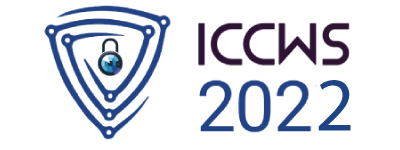Keynote Speakers & Invited Talks
Below are the keynote speakers confirmed for IEEE ICCWS 2022 conference
 Prof. Olaf Maennel
Prof. Olaf Maennel
Centre of Digital Forensics and Cyber Security, Tallin University of Technology, Estonia
Talk Title: The evolving world of cyber-operations
Abstract: “Cyber”, as the 5th domain of warfare, is getting more awareness recently. Our unpreparedness is also becoming apparent. In this talk, we will revisit some recent developments in the sector and discuss the underlying fundamentals of the problems we are seeing. How can we increase our cybersecurity posture as individuals and organisations? Simple cybersecurity awareness changes, combined with some common sense and essential critical thinking, can already bring us quite far. We will discuss some examples of offensive methods and understand how to build the required defensive culture
Bio: Olaf Maennel is a professor of Cyber-Security at Tallinn University of Technology in Estonia at the Centre of Digital Forensics and Cyber Security. Before that, he was with Loughborough University in the UK and the University of Adelaide in Australia. He has been general co-chair of ACM SIGCOMM 2015 and ACM IMC 2017. He has a background in computer networks from the Technical University in Munich, where he graduated in 2005. His current research interests include network security, critical transportation infrastructure protection (specifically in maritime and aviation), and cyber-security education
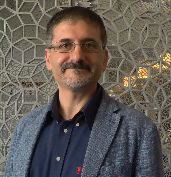 Prof. Dr. Roberto Di Pietro
Prof. Dr. Roberto Di Pietro
ACM Distinguished Scientist, Professor in Cybersecurity, College of Science and Engineering (HBKU-CSE), Hamad Bin Khalifa University, Qatar
Talk Title: The cyber security of Drones: Attacks, defences, and future challenges
Abstract: Unmanned Aerial Vehicles (UVAs), also known as drones, are the classical dual usage technology. On the one hand, their adoption and possible use cases in the civil sector are blooming. On the other hand, their usage in warfare matters is the news. In this latter context, drones represent the last frontier of cyber warfare. Indeed, UAVs can be seen as the archetypal cyber-physical systems. As such, their cyber component---think of the navigating assistant component, the communication component, and the data processing component, to cite a few---represent a valuable target for any rational adversary. In this talk, we will discuss some recent contributions intended to secure UAVs from the compromising of some elements of their cyber components. The talk will conclude with some highlights on the next challenges. UAVs will be confronted with in the cyber warfare context and what can be done to reduce the threats posed by this technology.
Bio: Prof. Dr. Roberto Di Pietro, ACM Distinguished Scientist, is a Full Professor in Cybersecurity at Hamad Bin Khalifa University, College of Science and Engineering (HBKU-CSE). Previously, he was in the capacity of Global Head Security Research at Nokia Bell Labs, and Associate Professor (with tenure) of Computer Science at the University of Padova, Italy. He started his Computer Scientist career back in 1995, serving for a few years as a military senior technical officer with the Italian MoD (Ministry of Defense). He has been working in the security field for 25 years, leading both technology-oriented and research-focused teams in the private sector, government, academia, and Intl. Organizations (United Nations HQ, EUROJUST, IAEA - International Atomic Energy Agency, WIPO - World Intellectual Property Organization). His main research interests include AI-driven cyber-security, security, privacy, and resiliency for wired and wireless distributed systems (e.g. Blockchain technology, Cloud, IoT, OSNs, CIs), applied cryptography, intrusion detection, and data science. Other than being involved in M&A of start-up—and having founded one (exited)—, he has been managing several multi-million-dollar security projects, producing 260+ scientific papers and 16 patents over the cited topics, co-authored three books, edited one, and contributed to a few others. In 2011-2012, he was awarded a Chair of Excellence from University Carlos III, Madrid. In 2020, he received the Jean-Claude Laprie Award for having significantly influenced the theory and practice of Dependable Computing. He is consistently ranked among the 2% world-top scientists.
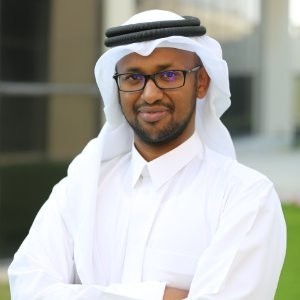 Dr. Aiman Erbad
Dr. Aiman Erbad
Associate Professor and Head of Information and Computing Technology Division in the College of Science and Engineering, Hamad Bin Khalifa University (HBKU)
Talk Title (Online): Efficient and Privacy Preserving Distributed Inference in IoT Systems
Abstract: Traditional cloud-based Internet of Things (IoT) architectures cannot guarantee communication and computational efficiency in data intensive applications leading to issues in scalability, real-time interactions, and data privacy. This motivated the need for new emerging architecture such as edge, fog and pervasive computing, where we merge hierarchical computing with efficient communication, leveraging learning-based distributed optimization, in order to optimally allocate computations and communication while addressing the identified issues.
Bio: Aiman Erbad is an Associate Professor and Head of Information and Computing Technology Division in the College of Science and Engineering, Hamad Bin Khalifa University (HBKU). Prior to this, he was an Associate Professor and the Director of Research Planning and Development at Qatar University until May 2020. He also served as the Director of Research Support responsible for all grants and contracts (2016-2018) and as the Computer Engineering Program Coordinator (2014-2016) at Qatar University. Dr. Erbad obtained a Ph.D. in Computer Science from the University of British Columbia (Canada), a Master of Computer Science in embedded systems and robotics from the University of Essex (UK), and a BSc in Computer Engineering from the University of Washington. He received the Platinum award at Qatar Education Excellence Day 2013 (Ph.D. category). He also received the 2020 Best Research Paper Award from Computer Communications (ComCom), the IWCMC 2019 Best Paper Award, and the IEEE CCWC 2017 Best Paper Award. His research interests span cloud computing, edge intelligence, Internet of Things (IoT), private and secure networks, and multimedia systems. He is a senior member of IEEE and ACM.
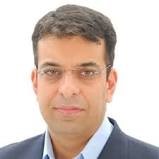 Mr. Rizwan Mir
Mr. Rizwan Mir
CISO, VideoJet Technologies Pvt Ltd, Chicago, USA
Talk Title: EMERGING TRENDS IN CYBERSECURITY
Abstract: The internet is now being used to run electronic transactions globally across personal, business, and government sectors. With the adoption of mission critical Internet services, cyber security is no longer an after thought. The goal of this session is to describe the evolving trends in cyber threat and defense against the backdrop of developing countries like Pakistan. The initial part of the presentation will give the audience an appreciation of the new threat landscape which now includes nation-state actors waging cyber wars, as well as cyber-criminal operating as an organized industry. We will share examples of how these threat actors are disrupting web services, attacking citizens' privacy, hacking personal devices, leveraging deep fake technology, and causing a sharp rise in financial loss by deploying ransomware in IT systems. In the second part of the presentation, we will touch on the new frontiers of cyber defense. This includes the adoption of product security in the software development process, digital identity taking the center stage, the concept of zero-trust networks, and the importance of cyber resilience in response to a successful cyber-attack. We will also review new trends in personal data rights, emerging cyber laws, and the responsibility of web-scale companies as well as governments in protecting their consumers.
Bio: Mr. Rizwan Mir is heading Cybersecurity at a Fortune 500 company as Chief Information Security Officer. He is a seasoned cybersecurity executive with outstanding technical depth and business acumen spanning 20+ years of experience in Information Security, Telecom and IT consulting. Some of his major projects include setup of Security Operations Centers and deployment of an Identity and Access management for 15,000 users with Cloud Identities. Formerly as Chief Executive Officer of Universal Service fund in Islamabad, Mr. Rizwan created a technology roadmap for ICT in the underserved areas of the country working in collaboration with executive stakeholders from the Telecom sector and Ministry of IT and Telecom. Other key positions include GM of a new product launch with Ericsson, Global Product Line Manager for Cloud transformation at RADISYS and Director of mobile infrastructure deployment at Lucent Technologies. Mr. Rizwan holds a Masters in Electrical Engineering from Ohio State University, Columbus OH as well as an executive MBA with Benedictine University, Lisle, IL. Rizwan also holds industry leading Cybersecurity certifications including CISSP and CSSLP from ISC and Certified Ethical Hacker certification from the EC-Council.
 Dr. Salman Baset
Dr. Salman Baset
Head Product Security, MongoDB, USA
Talk Title: State of Cloud Security and its Future
Bio: Dr. Salman Baset drives the security and compliance product management for MongoDB Cloud and database. At MongoDB, he has led numerous products and features to fruition, including MongoDB Atlas for Government. He has worked at IBM and IBM Research, as CTO Security of IBM Blockchain Solutions, and as a Research Staff Member. He has co-authored over 30 papers and has over 25 patents, issued or filed
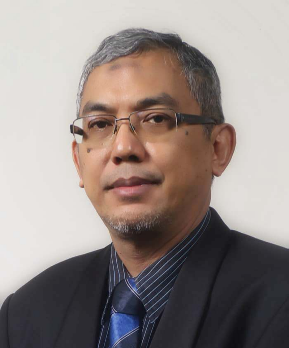 Dr. Zahri Yunos
Dr. Zahri Yunos
Board Member, Universiti Teknikal Malaysia Melaka, Strategic Cybersecurity Advisor, Securelytics, Malaysia
Talk Title: Documentation, procedures and testing profiles in Common Criteria
Abstract: In this talk, a high-level overview on documentations, procedures and testing profiles in Common Criteria are covered. Discussion will focus on how Common Criteria improves security of ICT products and systems, while at the same, increases confidence level in using these products and systems. At the end of the presentation, the audiences will have understanding on what Common Criteria is all about (with some case studies in Malaysia). The talk is intended for a wider audience, to have general know-how on Common Criteria and its related components.
Bio: Dr Zahri Yunos is the Board Member of Universiti Teknikal Malaysia Melaka, Malaysia. He is also serving as the Strategic Cybersecurity Advisor of Securelytics, Malaysia. He also has been appointed as Adjunct Professor at several universities in Malaysia. Formerly, Dr Zahri Yunos was the Chief Operating Officer of CyberSecurity Malaysia, an agency under the Ministry of Communications and Multimedia Malaysia. Dr Zahri played a crucial role in establishment of the OIC-Computer Emergency Response Team (OIC-CERT), a collaborative effort of cybersecurity initiatives amongst the OIC countries. He holds a PhD in Information Security from the University Teknikal Malaysia Melaka, Malaysia. He has contributed to various publications and presentations on topic related to cybersecurity, business continuity management and cyber terrorism.
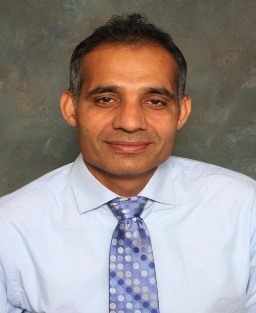 Prof. Dr. Hafiz Malik
Prof. Dr. Hafiz Malik
Professor, University of Michigan - Dearborn, USA
Talk Title: Disinformation Crisis in Pakistan: Societal Implications & Interventions
Abstract: Advances in artificial intelligence, development of deepfake - a new form of manipulated media technologies, and evolution of social media platforms are key drivers behind exponential rise of global disinformation pandemic. Deepfake technology is weaponizing information and social media platforms are adding fuel to the fire. Bad actors are taking advantage of deepfake technologies and social media platforms to spread falsehood, amplify rumors, propagate disinformation, distort facts, and influence election outcomes. Recent studies indicate that disinformation has a negative impact on society and well-being. For instance, it is a stressor, drives up polarization, and increases distrust in the healthcare system. Series of disinformation campaigns during natural disasters, geopolitical conflicts, and political events in Pakistan, government and intelligence agencies have started preparing for future malign operations. Despite limited success in detecting and countering disinformation campaigns, the bad actors continue taking advantage of emerging AI technologies and re-tooling social platforms to spread falsehood and manipulate the political discourse. This talk will discuss key enablers for disinformation pandemic, e.g., deepfake and shallowfake technologies and threats they pose to Pakistan’s national security, its democratic institutions, financial institutions, and the society at large. This talk will present state-of-the-art on information authentication, share findings of our-on-going research on content verification for digital media, and propose a framework to counter disinformation crisis
Bio: Dr. Hafiz Malik is Professor of Electrical and Computer Engineering (ECE) at the University of Michigan –Dearborn. Leading national and international sponsors have funded his research in the areas of automotive cybersecurity, cyber-physical system security, sensor security, deepfake detection, multimedia forensics, steganography/steganalysis, information hiding, pattern recognition, and information fusion. He has published over 100 articles in leading peer-reviewed journals, conferences, and workshops. He is a founding member and chief operating officer (COO) of the Global Foundation for Cyber Studies and Research, a founding member of the Cybersecurity Center for Research, Education, and Outreach at UM-Dearborn and member of leadership circle for the Dearborn Artificial Intelligence Research Center at UM-Dearborn. He is also a member of the Scientific and Industrial Advisory Board (SIAB) of the National Center of Cyber Security Pakistan. He is a member of MCity Working Group on Cybersecurity, since 2015.
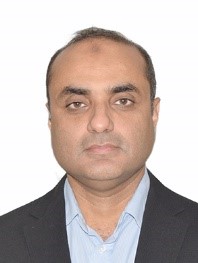 Dr. Jawwad A. Shamsi
Dr. Jawwad A. Shamsi
Professor - Computer Science, Dean - Faculty of Computing, NUCES, Karachi
Talk Title: Deepfakes: Issues and Challenges
Abstract: Deepfakes technology allows creation of synthesized digital contents. This can be used to impersonate a person or initiate a disreputation cyberattack. Emerging challenges and requirements in cybersecurity necessitate us to deeply understand the process of deepfakes, it’s types, generation and detection methods, and research directions. This talk is focused on the above mentioned needs. The talk will cover the process of deepfakes detection and generation using deep learning technologies. It will also focus on existing issues and challenges in the domain. The talk will be useful for students, academicians, and researchers in getting a better understanding of the field.
Bio: Jawwad A. Shamsi is a Professor of Computer Science and Dean – Faculty of Computing at FAST-National University of Computer and Emerging Sciences, Karachi. Jawwad earned a PhD. degree in CS in 2009 from Wayne State University, MI, USA. His research interest lies in developing secure, scalable, and intelligent systems, through integration of different technologies such as Cloud, Artificial Intelligence, Mobile systems, Machine Learning, Security, IoT, and Blockchain. Teaching has been his passion. He has also authored a book on Big Data Systems, which has been published by Taylor and Francis. His research has been funded by HEC, NCAI, and NVIDIA. He also leads an edtech based startup called iParhai. Contact him at jawwad.shamsi@nu.edu.pk
 Ms. Jean Daka
Ms. Jean Daka
Independent Digital Forensics Consultant, Brussels, Belgium
Talk Title (Online): The Cyber Security of Rail
Bio: Ms. JeanDaka is an independent Digital Forensic Consultant in Brussels, Belgium. Formerly, She served as the Director within the Deloitte’s Enterprise Risk Services practice in Belgium and was mainly responsible for Computer Forensic and eDiscovery assignments. With over 20 years of relevant experience and exposure across Africa, Europe, Asia and the USA, she has built a specific expertise in computer forensic assignments and knowledge discovery techniques to investigate and/or mitigate issues related to fraud and financial crime and other regulatory compliance. She has been involved in projects for clients with challenges in the area of fraud, anti-trust, corruption, IP infringements, data protection, data privacy and incident response.
